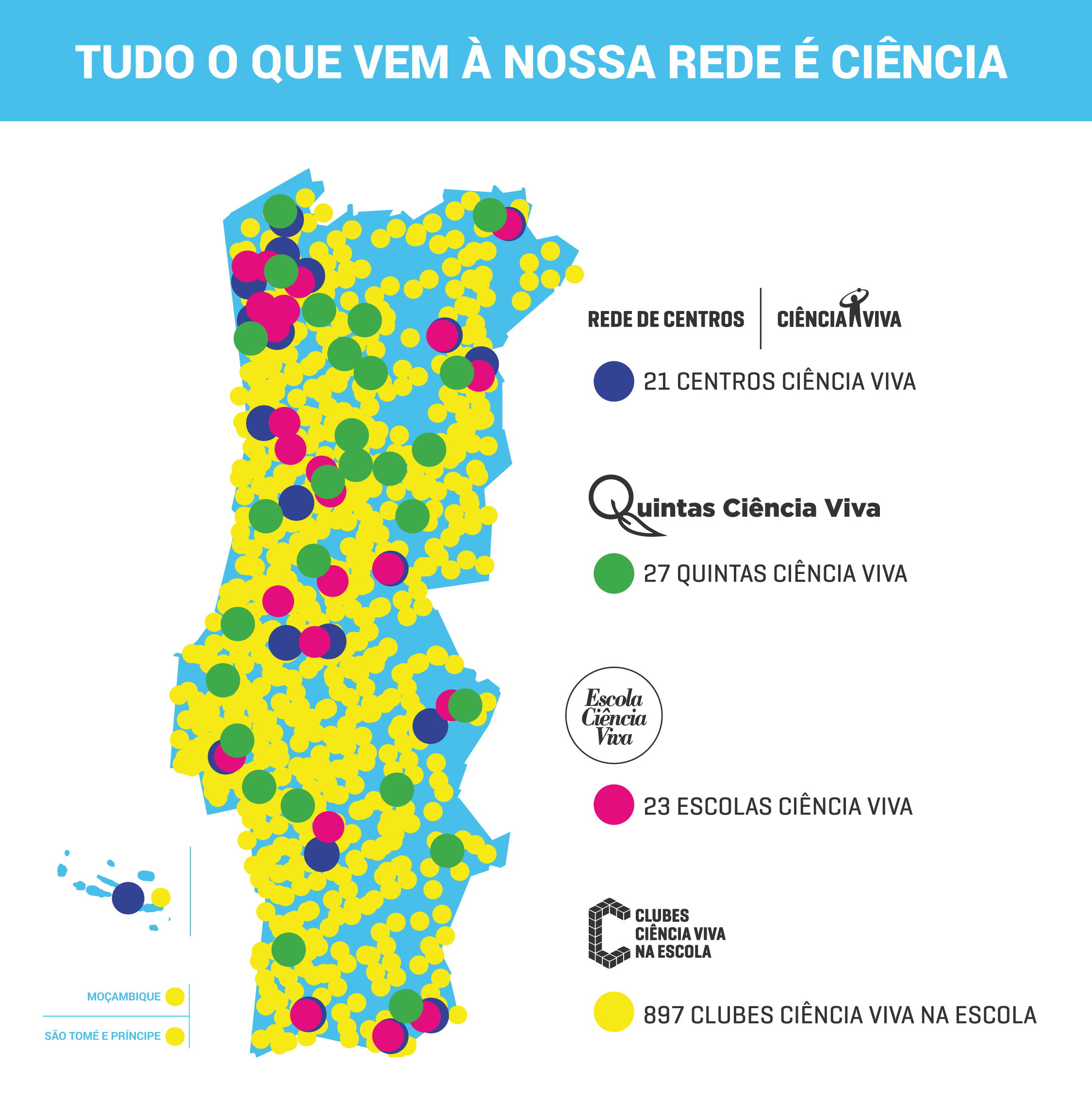
TUDO O QUE VEM À NOSSA REDE
É CIÊNCIA
Ciência Viva was founded in Portugal in 1996, on the initiative of the then Minister of Science and Technology, José Mariano Gago, as a government programme to promote education and scientific culture.
In 1998, it became an association of scientific institutions, adopted the name Ciência Viva - Agência Nacional para a Cultura Científica e Tecnológica (Ciência Viva - National Agency for Scientific and Technological Culture) and began a process of expansion that has made it what it is today: a national organisation with a network of 21 science centres spread throughout the country, driving a social movement in favour of science and scientific culture involving hundreds of thousands of researchers and citizens, students and teachers, young people and adults.
From the outset, Ciência Viva has been an open programme, encouraging alliances between different sectors of Portuguese society, from universities to primary schools, from companies to research laboratories, from local authorities to private associations and professional organisations.


In more than two decades of existence, it has implemented a successful strategy of empowerment of the main actors in science education, active involvement of the public in science and dialogue between science and society, and is internationally recognised in its areas of intervention.
Ciência Viva's members include the main national research laboratories. It is also a member of ECSITE, a European network that brings together more than 350 science centres and museums. Through this European network, it is part of the consortium that organises the EMME (Euro Mediterranean and Middle East Summer School of Science Communication), led by ECSITE and Names, a network of North African and Middle Eastern institutions.
Ciência Viva is also a member and board member of ASTEC - Association of Science - Technology Centres, the International Council of Museums (ICOM) and the European Science Events Association (EUSEA). International organisations with which it regularly collaborates include CERN, the European Space Agency (ESA), the European Maritime Safety Agency (EMSA), the King Baudouin Foundation, the European Brain Council, the La Caixa Foundation and Biogen.